Types of siphons for the Genoa bowl
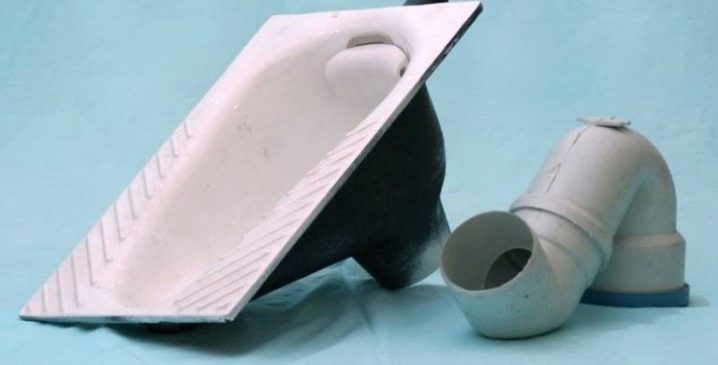
Not everyone knows what lies under the original name "Genoa Bowl". Although the explanation is quite prosaic. It is a special kind of toilet bowls that we can see in public places. An important component of such plumbing is a siphon. It is about him, its features, subtleties of choice and installation that we will talk about in this article.
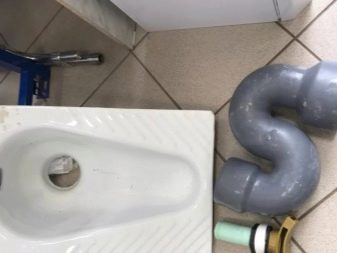
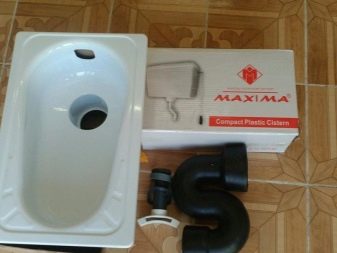
What is it?
The Genoa bowl is, as mentioned above, a floor-standing toilet. It is installed in public places, and most often - in state institutions and places of service for the population. Such a toilet bears its name only on the territory of the countries of the former USSR, in the rest of the world it is called a floor-standing or Turkish toilet. It is not known exactly where this name came from, but there is only an assumption that the "Chalice of the Grail" located in the city of Genoa has some similarities with this toilet model.
It should be noted that this is only an assumption that does not have solid evidence. Genoa bowls are now made from a variety of materials, including ceramics, porcelain, stainless steel and cast iron.
The most common is the ceramic model. It is easy to clean and it is possible to do without a divider. Other models are less common and much more expensive.
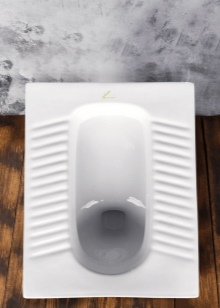
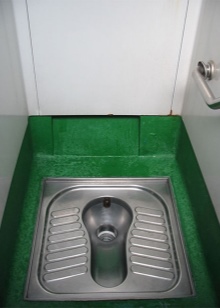
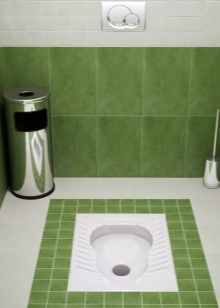
How does it work?
The siphon is used to drain the drain and is a kind of "gate" for unpleasant odors from the sewer. The latter becomes possible due to the special shape of the pipe - it is S-shaped, which allows it to accumulate a part of the drained water. and keep it as a "lock" for unpleasant odors. This water lock is also called a water seal. If the siphon is defective, then the water in the water seal will evaporate, and the smell will penetrate into the room.
Due to the important function that the water seal and the drain itself perform, the siphon can be considered the main part of the floor-standing toilet. Also, a gasket is included with the siphon as a seal.
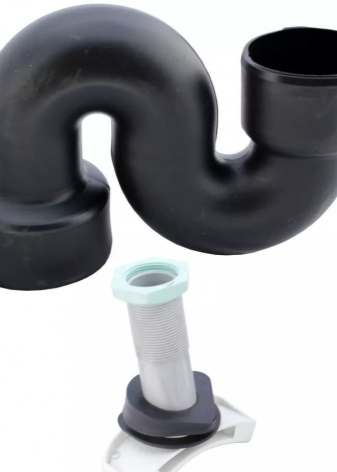
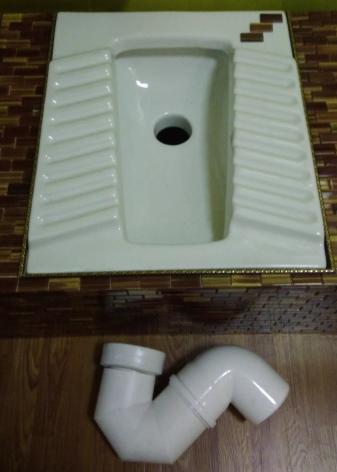
Varieties
All manufactured siphons are divided according to the material of manufacture.
- Cast iron models. The advantage of such models is their durability and ease of installation. In addition, these models differ in budgetary price. They perfectly tolerate the action of aggressive liquids. Installed with a socket on the front of the siphon. The average weight of a cast iron siphon is 4.5 kg.
- Steel models are also durable. Models are produced even more budgetary than cast iron. Lightweight, come in different sizes. Rubber couplings help to install such siphons. The average weight of a steel siphon is 2.5 kg.
- Plastic models. These siphons are made of high-strength plastic. Their main advantage is simple fastening with a coupling. Unfortunately, they are not durable and can deteriorate from both acidic environments and harsh chemicals. The average weight of a plastic siphon is 0.3 kg.
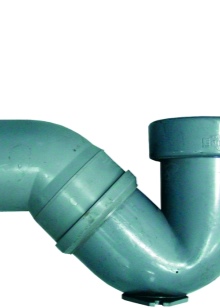
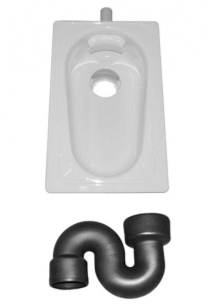
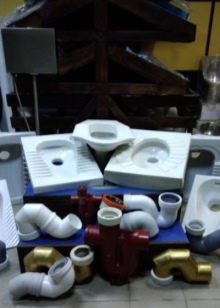
Despite the disadvantages present, most often during installation, preference is given to plastic siphons. Due to their plasticity, they are least likely to damage the ceramic and porcelain bowls of Genoa.
In general, these siphons are versatile and fit any toilet material. Steel and cast iron siphons are best used for steel and cast iron floor-standing toilets, respectively. This is only a general recommendation, in any case, other factors must be taken into account when purchasing a siphon.
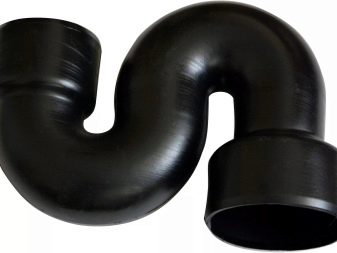
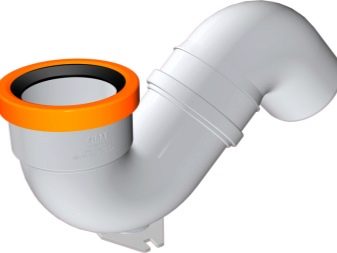
Also, siphons are divided according to their design.
- Horizontal models. Installed on bowls with little space underneath.
- Vertical models. These models are installed by default if space is available.
- Inclined (at an angle of 45 degrees) or angled models. This model is installed if the floor bowl is located close to the wall.
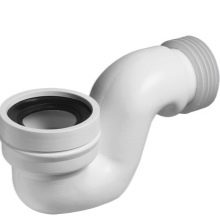
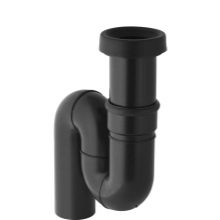
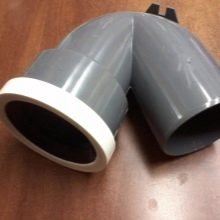
Subtleties of installation and operation
The installation process includes the following steps.
- We carry out the sewer pipe to the restroom.
- We install a siphon on the pipe.
- We install a siphon on the entire structure from above.
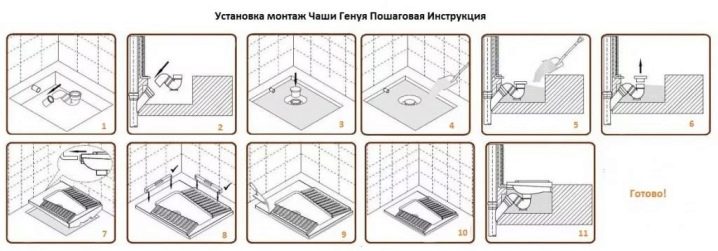
The attachment for the Genoa bowl is a corrugation. Also, during installation, it is imperative to use a sealant. The main problem during operation can be clogging. Almost every model now produced has a clog hole in the front to help clear the blockage. The main thing is that during installation it is in an accessible space. It is also possible to purchase a model equipped with a chopper pump, which will facilitate the solution of the blockage problem.
It is also possible to purchase a model equipped with a chopper pump, which will facilitate the solution of the blockage problem.
The second common problem is the replacement of the old model with a new one or the initial installation. Otherwise, it is necessary to use the siphon for its intended purpose and not to drain large and solid objects there.
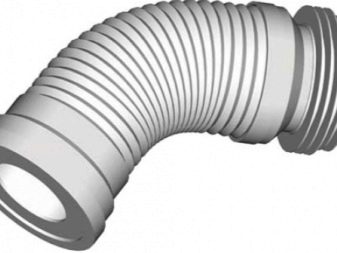
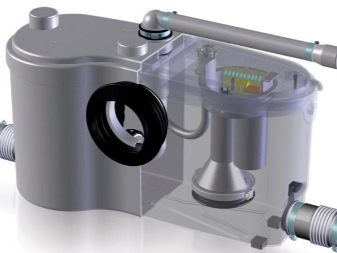
In conclusion, I would like to note the fact that most of modern siphons are durable, but this branch of production is constantly evolving. This also applies to the evolution of the floor bowls. Each time you install a Genoa bowl, you need to take into account the individual characteristics of the toilet itself and try to acquire not only high-quality "spare parts" for it, but also those that meet modern requirements.
Next, you will find an overview of the plastic siphon for the Genoa bowl.













The comment was sent successfully.